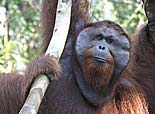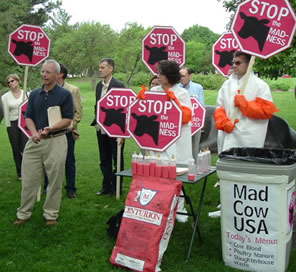Mad Cow USA - The Coverup Continues in Washington
Submitted by John Stauber on
The Associated Press notes that the Bush administration "will fight to keep meatpackers from testing all their animals for mad cow disease. The Agriculture Department tests fewer than 1 percent of slaughtered cows for the disease, which can be fatal to humans who eat tainted beef. A beef producer in the western state of Kansas, Creekstone Farms Premium Beef, wants to test all of its cows," but the US government has said such private testing is illegal. "U.S.


 While scant serious attention is paid to
While scant serious attention is paid to  On May 2, a U.S.
On May 2, a U.S.